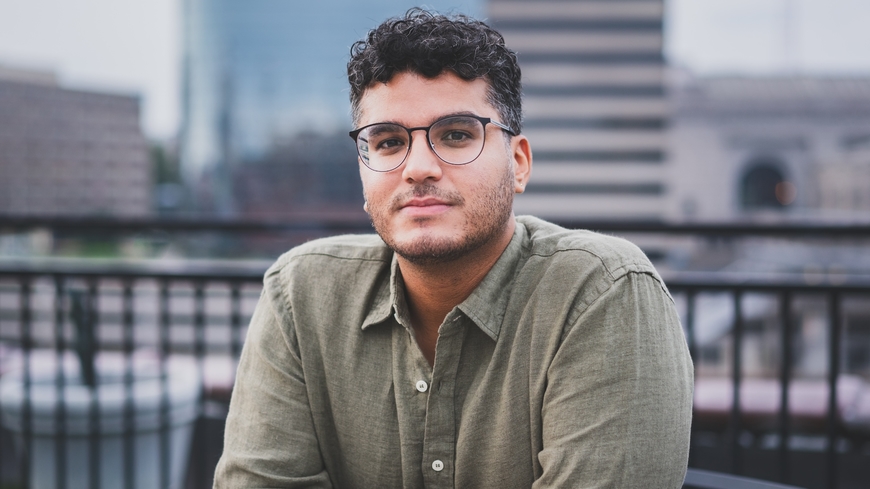Music Studies Colloquium | Noel Torres-Rivera
2106 S 4th St
Minneapolis,
MN
55455
This School of Music event is free & open to the public.
Abstract:
Writing in 1960 about the cultural consequences of modernity, Puerto Rican writer José Balseiro stated: “Like the mazurka, the [Puerto Rican] danza lives on as a concert idiom rather than the social dance it once was” (Díaz Díaz, Manuel 2009). Certainly, by the time of this statement, and as part of a nation-building project in a colonial context, Puerto Rico’s cultural elite had long established the danza, a pan-Latin American phenomenon, as a prime national symbol, locating its demise as a contemporary art form between the 1930s and 1940s. Although certainly grounded on material and discursive records that cannot be simply dismissed, the partiality of prevailing teleological narratives of the danza like these become ever more apparent when reexamined vis-à-vis issues of class (Quintero 2020), politics, institutional privilege, racial imaginaries (Viera 2020), and intellectual elitism (Allende 2010) even in the context of Puerto Rico. Similarly, when it comes to historiography, there is the question of which memories, communities, places, and ways of engaging with it have been excluded from these accounts, and what would change when those are considered.
Challenging narratives about the Puerto Rican danza’s “development” and “demise,” this article explores mid-twentieth century practices of this genre in the southeastern town of Guayama, Puerto Rico. Through the examinations of previously unseen documents, scores, material, and oral history related to Puerto Rican composer Rafael Aponte-Ledée (b.1938), it analyzes three modes of engagement with the genre in context: listening to danzas through the radio, performing danzas as clarinetist, and composing danzas. Through this it argues that, more than a decidedly historicized concert genre within a broader art-music tradition, the danza was rather at the center of his musical cosmos as a tradition and practice he fully experienced in its contemporaneity. Although issues of historiography, genre formation and transmission, and national discourses in a regional context are its guiding principles, this case study also touches on two broader inquiries. First, a consideration of Aponte-Ledée’s early musical experiences contributes to the study of Puerto Rico’s contemporary music scene during the 1960s and 1970s, particularly in the later crystallization of an esthetic principle that attempted to blur the lines between the classical, the popular, and the folk. Second, methodologically speaking, it argues for a possibility for composer-focused research as we move towards post-biographical approaches to music scholarship.
Artist Bio:
Noel is a music scholar whose work centers Puerto Rican, Spanish, and Latin American histories and repertoires. His areas of interests include music and meaning (topic theory, semiotics, hermeneutics), music and politics, historiography, decolonial/postcolonial studies, avant-garde/experimentalisms, microhistories, and performance. Noel has presented his research at the annual meetings for the Society for Music Theory (SMT), the American Musicological Society (AMS), and the Society for American Music, as well as conferences and symposiums in Puerto Rico, México, Argentina, Brazil, and Spain. He is currently working on a monograph that traces transnational artistic and intellectual exchanges within Latin America and Spain by venturing into the early work of Puerto Rican composer Rafael Aponte-Ledée (b. 1938), a leading figure in the Puerto Rican musical avant-garde movement in the late 1960s and early 1970s. His first article, forthcoming at the Journal of American Musicological Society, reconstructs the composition and performance history of Rafael Aponte-Ledée’s multi-modal work, Presagio de pájaros muertos (1966). Committed to public scholarship, he has presented concert talks in Germany and Puerto Rico, has written and translated content for various online platforms and blogs, and serves as the program annotator for the Puerto Rico Symphony Orchestra and the Festival Casals de Puerto Rico. Inside and outside of academia, he has also worked in the production of various artistic events and performances. Most recently at UMKC-Conservatory he directed “América Festival,” a Latin American music/academic event in collaboration with the Mizzou New Music Initiative, Classical KC, and the Conservatory of Music of Puerto Rico. Before joining UMKC-Conservatory, Noel taught undergraduate and graduate courses at the Conservatory of Music of Puerto Rico, City College of New York (CUNY), and New Jersey City University. He holds a B.M. in Violin Performance from the Conservatory of Music of Puerto Rico, a M.M. in Music Theory from Temple University, and a Ph.D. in Music Theory from The Graduate Center, CUNY. In his free time, he enjoys making pasta.
